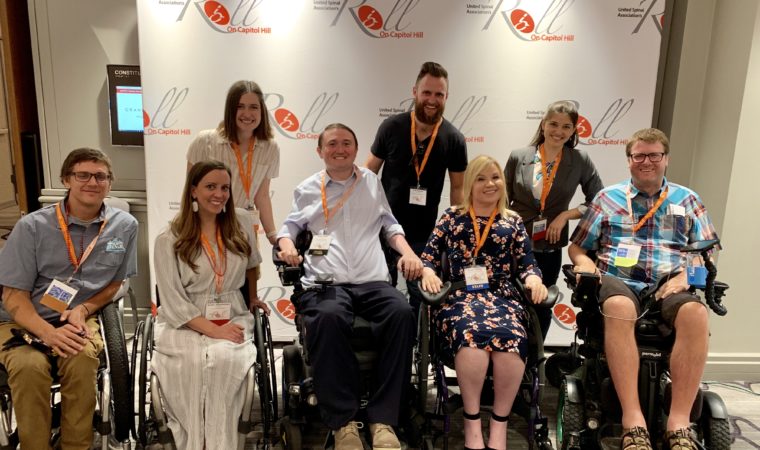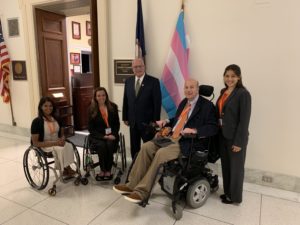Written by Mackenzie Saunders:
Last week, the United Spinal Association held their 8th annual Roll on Capitol Hill event, where around 100 advocates addressed issues that impact the health, independence, and quality of life of those living with spinal cord injuries and disorders (SCI/D).
The advocates in attendance included dozens of individuals from around the nation who have sustained spinal cord injuries, such as The Spinal Cord Injury Law Firm’s Founder Kelley Simoneaux and the firm’s Intern Mackenzie Saunders. The participants also included physical therapists, occupational therapists, wheelchair manufacturers, United Spinal staff, and other individuals connected to the spinal cord injury and disorder community.
What Happened at Roll on Capitol Hill
On June 23rd and June 24th, Roll on Capitol Hill attendees networked and discussed advocacy relating to spinal cord injuries and disorders. Topics discussed included universally accessible autonomous vehicles and reforming rehabilitation practices nationwide. Kelley Simoneaux was also featured in the program for her grassroots advocacy work in accessibility in the rideshare space.
On June 25th, the advocates made their way to Capitol Hill to discuss SCI/D legislative issues with key congressional leaders.
At the Capitol, Roll on Capitol Hill attendees collectively held over 400 meetings with different congressional members and staffers. During these meetings, conference attendees encouraged Congress to support bills such as the Disability Integration Act— which focuses on making communities accessible for people with disabilities across the nation—and the Air Carrier Access Amendments Act of 2018, which seeks to protect the rights of passengers with disabilities during air travel. These SCI/D advocates also pushed congressional leaders to support developing accessible autonomous vehicles, reforming rehabilitation programs, and providing better coverage for complex rehabilitation technology.
After spending the day on the Hill, United Spinal Association put on a Congressional Reception, where Roll on Capitol Attendees and many congressional leaders gathered to celebrate key spinal cord injury advocates. This reception was a great way to celebrate the participants for their hard work, while also recognizing congressional leaders that have helped in the fight to increase the quality of life for those with spinal cord injuries and disorders.
The Lasting Effects of Roll on Capitol Hill
On June 26th, Roll on Capitol Hill attendees gathered to discuss what they took away from their day on the Hill and the conference as a whole. Several advocates cited how receptive congressional leaders were during meetings, showing promise of real legislative change on the Hill. More advocates noted that this conference gave them the newfound confidence and resources to speak to members of Congress in an informed and effective way. One attendee, a user of a powerchair, spoke on her overall excitement about being a part of a large group of people in wheelchairs; she said that rolling around D.C. with dozens of fellow wheelchair-users gave her a sense of strength, pride, and joy.
Through holding meetings on the Hill, the 8th annual Roll on Capitol Hill conference helped encourage congressional members to create real legislative change for the SCI/D community across the nation. However, legislative change on the Hill is not the only lasting effect that this conference will have. Roll on Capitol Hill empowers those with spinal cord injuries and disorders to speak up and make their voices heard in a nation where disability rights and issues are not at the forefront of the conversation. Roll on Capitol Hill attendees will carry this confidence with them as they travel home, and they will be able to use this confidence to make their voices heard and spark change in their own communities.
The next annual Roll on Capitol Hill will be held on June 14th through June 17th, 2020. All people with spinal cord injuries/disorders and those with ties to the SCI/D community are encouraged to attend.

